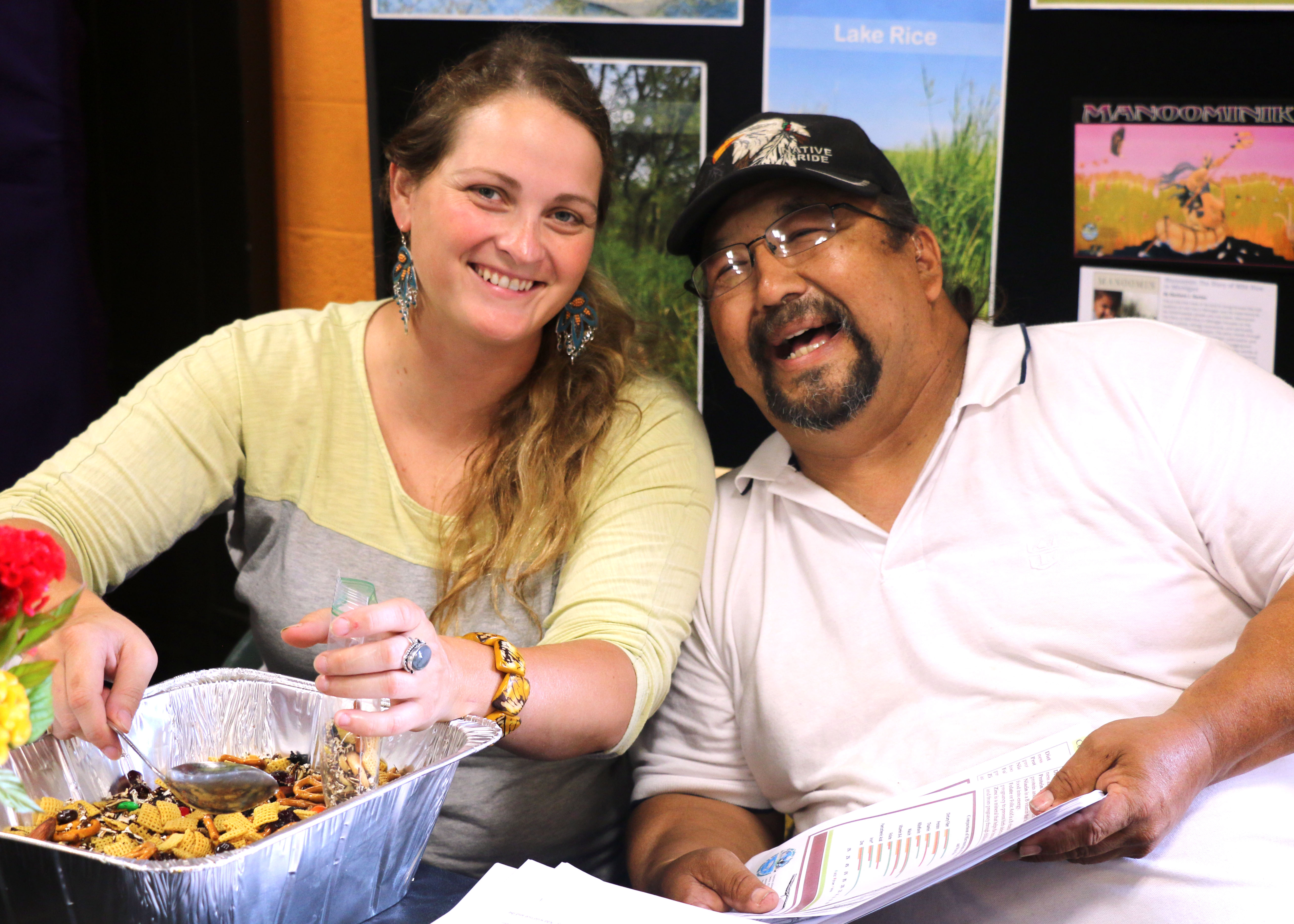Art Form: Wild rice (manoomin) cultivation and harvesting
Location(s): Trout Creek (Ontonagon County)
Roger LaBine

Roger LaBine (r) with colleague Cortney Collia (l) at the 2018 Lansing Eastside Folklife Festival, photo by Pearl Yee Wong
Roger LaBine is a member of the Lac Vieux Desert Band of Lake Superior Chippewa (Getegitigaaning Nation). An active member of this community, Roger has worked diligently to cultivate manoomin, or native wild rice, in Michigan’s Upper Peninsula. His uncle Archie “Naganash” McGeshick transmitted his own traditional knowledge to Roger in the early 1970s in the hope that Roger would carry on this legacy. McGeshick passed away in 1999. Roger and his family construct the tools required, from special boats to carry the rice in from the water, to push poles to steer the boats, to winnowing baskets used to separate the edible portion of the grain. Roger believes that “rice is a sacred gift from the Creator.”
Barbara J. Barton’s study, Manoomin: The Story of Wild Rice in Michigan, is the foremost study of the wild rice industry in Michigan and details the growth of the wild rice product through the 19th and 20th centuries (1). Roger LaBine is one of her primary informants and wrote the introduction ot the first chapter. Barton documents the role of LaBine in the resurgence of and the sustainability of the wild rice industry. In her recommendation letter, Barton writes that “Roger’s enthusiasm and devotion to Manoomin has inspired hundreds of people. His camps are open to all people regardless of tribal affiliation. He will travel anywhere anytime to share the knowledge about this sacred plant. One can find him at traditional arts gatherings around the state, often at other Tribes during ricing season teaching and sharing his knowledge.
During the summer of 2017 and 2018, LaBine was a demonstrator at the Great Lakes Folk Festival and the Lansing Eastside Folklife Festival. Roger is also dedicated to the public education of rice growing and harvesting. He even brought samples of homemade puffed wild rice for festival participants to enjoy. For the past eleven years, Roger has held rice camps throughout the state to educate various communities about this cultural resource. LaBine is widely recognized by his Chippewa/Ojibwe rice growing peers and by Woodland Indian cultural experts as a premier rice planter and harvester who practices this traditional skill with excellence. In 2023, LaBine was instrumental in manoomin being recognized as the official native grain (House Bill 4852) of the state of Michigan by Governor Gretchen Whitmer.
(1) Barton, Barbara J. Manoomin: The Story of Wild Rice in Michigan. East Lansing, MI: Michigan State University Press, 2018.
- John Moe and Micah Ling, 2019





